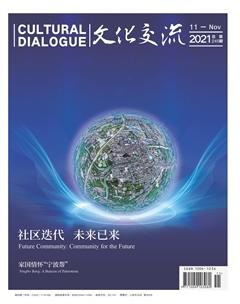杭州萧山区瓜沥七彩社区:从造房子到造社区造生活
位于杭州萧山区的瓜沥七彩未来社区是浙江省首批24个未来社区试点创建项目之一,该项目地处瓜沥镇新区核心地块,总投资50亿元,规划单元面积约79公顷,实施单元面积约40公顷。
在总体设计思路上,项目紧抓国家级临空经济区核心区域的临空机遇、2022亚运赛事举办地和国际化城市能级提升的亚运机遇、杭州与萧山数字经济推动瓜沥传统产业转型升级的产业机遇,着力打造中国都市圈TOD卫星镇的未来社区领先样本。
7个幸福触点
立项之初,项目便提出未来社区建设要以居民对未来生活的幸福感知和获得感为最终评判标准,规划者以瓜沥社区居民的幸福感知为设计本源,提炼出了7个幸福触点:邻里记忆、学习成长、医养健康、生活服务、创新创业、绿色低碳、社区凝聚,用“三化九场景”33类指标,系统性规划建设7个幸福触点的物理空间和数字化虚拟空间,为居民提供O2O线上线下的幸福服务。
作为初步形成七大场景并成功运营的未来社区试点,项目最大的亮点是实现了“公交TOD综合开发”模式下的用地政策创新与实践,在一个空间里,社区把公交站、商场、市民中心、住宅等都有机结合在一起,做到了有机融合。
原来的露天公交车站,也将被改建成一个邻里中心,六层楼高的建筑里,底下是公交总站,上面有三层停车场,还有电影院、屋顶健身中心、游泳池、老年活动中心等。不用出小区,就可以逛街、看电影、健身,根本不用担心交通问题。
在邻里中心的五楼,社区还建设了一个可以24小时服务、365天办公的社区智慧公共服务中心——“沥未来 · 七彩公共服务中心”,让“最多跑一次”再升级。这也表示社区将着力点放在了政府的公共服务提升上。
七彩未来社区邻里中心模式,脱胎于新加坡,核心创新点在于将满足社区居民美好生活的7个场景内容:公共服务、智慧治理、交通出行、创新创业、邻里共享、文化教育、运动健康,高度融合在10万平方米的一站式社区邻里综合体中,以步行15分钟的距离覆盖全社区,系统性解决社区全龄化居民的交通出行难、白天办事难、社区学习难、老人康养难的民生问题。
“沥未来 · 七彩公共服务中心”的人工窗口从早上9时开到晚上8时30分,全年无休。目前可办事项包括创业创新、社保医保、市民卡等89项,还有8台自助服务机,包括个体工商户年报机、社保自助查询机等,可自助办理172个事项。
采用土地混合出让模式,以新建的公交立体综合体为导向,为周邊居民提供一站式社区服务。通过企业持续运营邻里中心,实现政府不花一分钱投资、不耗费任何新的建设用地,获得重要公共配套用房,增强公共服务能力,真正实现公交公司、政府、投资运营商和社区居民多方共赢的良好局面,政企共建、多方共赢的模式成功实践了TOD立体公交模式,赢得频频点赞。
数字赋能
七彩社区推出的“沥小二”和“沥家园”微信小程序,创新数字治理,线上线下深度融合,增强了居民的幸福感和获得感。
在“沥小二”微信小程序里,可以实现伴随游客出行,想要找停车位,通过“HI,小二我要停车”功能,就可以查询停车场、智慧停车场和无杆停车场的车位情况。不止如此,这款小程序还能提供公共厕所、公共自行车、政府办事、饮食住宿、公交、航班等各方面信息服务,并实现地图展示和一键导航。
社区居民还可以享受“沥家园”微信小程序的贴心服务。
居民在“沥家园”手机端可获取数字身份,通过数字互动、数字公益、数字信用等方式,以志愿服务、垃圾分类、在线学习等途径获取积分。积分与村民的信用评价、评先评优、就业推荐等挂钩,并可在“沥 · mall”实体店兑换商品。
“我们最喜欢抢任务,不仅可以做公益,还能得积分。你看,我参加了好几次巡河行动。”“大家齐心协力做好安全工作,我觉得很有意义。”在七彩社区,到“沥家园”抢任务成了当下小区最流行的一件事。
“沥小二”和“沥家园”让社区自治更加深入基层管理单位与民众,体现数字经济时代家园风采,为创新治理方式、提高治理效能实现真正意义上的科技赋能。
创新活力
该社区一期建设成功实践了TOD立体公交模式,该试点创新的“原址提升+功能混合+有限投资+多方共赢”公交场站TOD综合开发实践经验,为浙江各级城市公共交通设施升级提供了点石成金的新思路,目前浙江正在着手谋划向全省数千个老旧公交场站复制推广。
接下来,七彩社区将把着力点放在数字创业、产城融合上,二期建设已正式拉开大幕。
七彩社区二期打造创业场景,实践数字创业产城融合模式,紧紧围绕5G时代数字创新创业人群的工作、生活、学习等多样化、一体化需求,规划建设成一个配套功能复合一体化、5G数字基础设施完善、工作居家5分钟、绿色低碳全覆盖的产城融合示范样板,为都市圈年轻人才提供一个低房价、无通勤、全设施的理想创业环境。
让未来兼具市井气。在二期,七彩未来社区重点将市井文化作为文化主线来串联社区场景,充满未来感的人才住宅建筑下面规划了瓜沥传统市井老街,现代与历史、科技与文化将在此碰撞出不一样的火花。在1.8万平方米老街场景旁,将就近延伸规划1.5万平方米的全民文化培训中心、2500平方米的社区诊疗中心和4000平方米的社区运动公园等主力内容,这条老街成为社区居民家楼下的邻里欢乐会客厅。
瓜沥镇作为杭州大都市圈的卫星镇,老旧小区如何提升改造,如何承接主城区溢出的产业和城乡融合的人口?以七彩社区建设为支点,瓜沥为浙江省其他乡镇如何快速融城、全面提升建设与治理理念方面提供了可操作、可落地的社区案例,同时也为浙江四大都市圈的“城+镇”发展模式提供了社区可持续发展的样本。
同时,七彩未来社区试点,将通过三年的时间,践行从粗放式、低效利用到集约化、精明增长的开发模式转变,从社区空间建造到社区内容营造和数字治理的管理模式转变。从居民、政府、企业三方协同出发,再现两千余年前儒家构画的“里仁为美、出入相友,守望相助,疾病相扶持”的邻里友善、社会和谐美好场景。而这些宝贵的经验将为非都市圈核心区的中小城市、城镇提供一个可对照、触手可及的未来可持续发展之样本案例。
至此,七彩未来社区在激发更多社会阶层、基层组织参与社区治理方面持续创新,取得了良好的社会效益。目前每年完成引流300万多人次,承接1000多个参观交流与会议活动,社区广场举办100多个邻里活动与表演,社区文化客厅开办500多堂邻里文化與公益课,让这里成了居民家之外的第二个公共客厅,初步实现了未来社区要推进的“从造房子向造社区、造生活”的模式转变。
Qicai Community: Building a Good Life
Situated in Guali township in Hangzhou’s Xiaoshan district, Qicai Community is one of the first batch of 24 future community pilot projects in Zhejiang province. Right at the heart of Guali’s new town area, the project is expected to draw a total investment of 5 billion yuan, with a planned construction area of about 79 hectares.
The project has been designed to fully tap into the resources and opportunities provided by the Hangzhou Airport Economic Demonstration Zone, which is close by, the 2022 Hangzhou Asian Games, which will see the further internalization of Hangzhou, and the upgrading and transformation of Guali’s traditional industry, which is driven by the development of digital economy in Hangzhou and Xiaoshan. Eventually, efforts will be devoted to building Qicai Community into a model of future community for China’s transit-oriented development (TOD) satellite towns.
At the start, it was clearly proposed that residents’ perception of happiness and sense of gain for their future life should serve as the final evaluation criteria for the project’s success, which became the basis for the planners to design the design. To that end, seven indicators, called “happiness touch points”, were set up: neighborhood memories, learning and growth, medical care and health, everyday life services, innovation and entrepreneurship, green and low-carbon as well as community cohesion. Happiness services have been provided to residents around these “touch points”.
As one of the first pilot future community projects in successful operation, the biggest highlight of Qicai Community is the land use policy innovation and practice under the model of “Bus TOD Comprehensive Development”. Using this model, the community organically integrates in one single area bus stations, shopping malls, civic centers, housing and so on.
For example, an open-air bus station has been transformed into a neighborhood center, with a bus terminal at the bottom floor, three floors of parking above, as well as a cinema, a rooftop fitness center, a swimming pool and a senior citizens’ center. Without leaving the neighborhood, one is able to enjoy shopping, watching movies and working out without worrying about traffic.
On the fifth floor of the neighborhood center, a community smart public service center has also been set up, which runs 24/7 for 365 days a year. It even tops the “one-stop public service”, widely available all throughout Zhejiang’s public service system. This also shows that the community has put its focus on further improving the government’s public service.
The neighborhood center seen in Qicai Community is based on the model in Singapore. Where it differs from the original model and has innovated upon is that it has highly integrated seven aspects that meet the demand of community residents for a good life, namely public services, smart governance, transportation, innovation and entrepreneurship, neighborhood sharing, culture and education, sports and health, in a 100,000 square-meter one-stop community neighborhood complex. Within a 15 minutes’ walking distance, the neighborhood center covers the whole community. Through the center, a series of issues that have been besetting the residents, such as difficult access to transport for senior citizens and to public services after working hours have been tackled.
Now, the manual service counters of Qicai Community’s public service center open from 9 a.m. to 8:30 p.m. all year round. A total of 89 items can be handled through these counters, including entrepreneurship and innovation, social security and medical insurance, citizen card, etc. There are also eight self-service machines, through which 172 items can be handled independently.
In addition, through innovative digital governance and deep integration of online and offline management, Qicai Community tries to enhance residents’ happiness and sense of gain. Via the two WeChat mini programs that the community launched, for instance, residents are able to check real-time car parking and act according. More than that, they also provide information on public toilets, public bicycles, government affairs, food and accommodation, buses and flights, as well as maps and one-click navigation. Indeed, residents can earn points for volunteer services, garbage sorting and online learning on the apps and exchanges merchandises through the online mall.
At present, with the second phase kickstarting, Qicai Community will focus its development on digital entrepreneurship and industrial integration, catering to the demands of 5G-era digital entrepreneurs for diversification and integration on work, life and learning.

